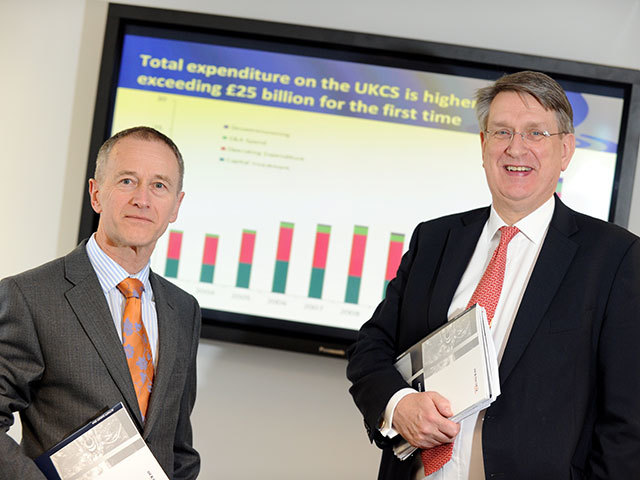
North Sea oil and gas is at a crossroads and record investment levels will plummet by half if nothing is done to help new projects get started, industry bosses have warned.
Nearly £26billion was spent offshore in 2013 but much of this was due to spiralling costs, trade body Oil and Gas UK (OGUK) said yesterday.tues
Production and exploration trends are declining, meaning operators are facing the biggest challenge in the history of North Sea oil, it added.
Announcing the findings of its latest annual activity survey, OGUK said capital investment last year totalled £14.4billion – a new record – but it warned that this was likely to fall to £13billion this year and could slump to about £7billion by 2016-17.
OGUK chief executive Malcolm Webb said the “clock was ticking” and urged the UK Government to quickly implement the four recommendations and 29 action points in Sir Ian Wood’s review of the oil and gas industry.
Watch our interview with Michael Tholen, Oil & Gas Economics director and author of the Activity Survey 2014:
The current “paradox” of high investment but a low rate of exploration success meant the industry faced two possible futures, Mr Webb said.
He added: “We desperately need to start drilling more wells but we also need to find those wells.
“We have to move fast … otherwise 2017 begins to look difficult.”
Even if currently planned wells go ahead, the rate of drilling would recover only a fraction of the estimated 6-9billion barrels of oil yet to be found, he said.
“It is critical we find the means to turn the current state of exploration around,” he added.
OGUK’s boss said it was time for “action rather than words” from the government, which has backed Sir Ian’s call on Monday for a new regulatory body and steps to encourage cross-industry co-operation.
Mr Webb said people were still “scarred” by the Treasury’s £10billion oil and gas tax grab in the 2011 Budget, but relations between Westminster and the industry had improved.
North Sea oil is becoming more expensive to produce, due to rising rig rates and the technical challenges involved in extracting crude from hard-to-reach locations.
OGUK said the impact of higher costs in 2013 meant total spending, including capital investment, matched revenue after all taxes were paid.
Only 15 exploration wells were drilled last year, compared with 44 in 2008.
Scottish Secretary Alistair Carmichael said the government was “committed to doing all it can” to give the industry the support it needed.
He added: “While capital investment remains at near record levels, this survey shows that this key sector faces real challenges around production and exploration.
“That is why we commissioned the Wood Review, which was published earlier this week, and that is why we are taking forward all its recommendations.
“The UK Government is also using its size and scale to invest and provide guarantees for exploration.”
Recommended for you
